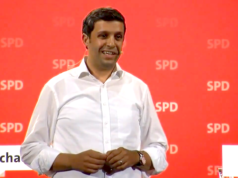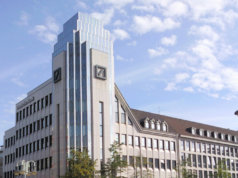It’s a trend found all throughout Eastern Europe: highly skilled workers pack up and move west in search of higher wages and better opportunities.
For countries such as Bulgaria and Romania, joining the European Union has made this option even easier. But a decade after joining the EU, both countries are feeling the affects of “brain drain”.
The good with the bad
There are tons of examples of skilled workers – doctors, engineers, economists, etc., etc. – finishing their degrees in home countries and moving west, particularly to Germany.
According to Statista, Germany’s statistical database, more than 225,000 Bulgarians were living in Germany in 2015 – many with an above average education. Since joining the EU in 2007, around 43,000 pharmacists have left Romania to work abroad, with about 5,000 medical specialists finding employment in Germany alone. This is great for Germany, who is on the receiving end of these highly motivated, well-educated workers.

According to Jalid Sehouli, director of Charité’s Gynecology Department (Charité is the largest medical institution in Germany):
“Some regions in Germany would not have medical personnel if it weren’t for doctors moving here from Eastern Europe.”
But it’s bad news for the home countries. The Bulgarian Academy of Sciences estimates that in five to ten years more than 400,000 skilled workers will have left the country. It’s currently the poorest in the EU. To date, there are only 28,000 doctors living in the country with more than 7 million inhabitants.
According to Mitko Vassilev, chairman of the German-Bulgarian Chamber of Industry and Commerce, “This emigration has had a very negative effect on the Bulgarian economy, for most of those émigrés were highly qualified specialists.” At the same time, German investors often complain about the limited number of highly skilled laborers in Bulgaria.
But emigration isn’t always a bad thing for the home country
Some immigrants return home after a few years, armed with the knowledge, skills and savings they learned (and earned) abroad. As well, while the immigrants are living abroad, they are often sending money home to family. Bulgarian Tanya Schnell is one such example. She returned home after studying in Germany, bringing her German husband with her.
“I came back because I love Bulgaria. And because I wanted to start something positive here,” says Schnell.
She says she misses some of the great things Germany has to offer – well stocked libraries, networks of bikes lanes, good healthcare, and great playgrounds for her two children to play on – but has no regrets about moving home.
“I have the feeling that I can be more useful here, that I can make more of a difference than in Germany – for instance when it comes to environmental protection. That gives me strength,” says Schnell.






















According to the IAB (Institut für Arbeitsmarkt- und Berufsforschung), there must be many many unskilled workers from Romania and Bulgaria. 42 % of the workforce are topping up their salaries with welfare benefits (aufstockendes ALG II). In times of an existing minimum wage of 8,50 EUR per hour this is really strange. The average “top up rate” for all foreigners is only 26%. However, EU law allows for immigration into low-paid part-time jobs and topping up with welfare benefits – including family allowance and cost-free healthcare insurance for the whole family. For more details, see: http://doku.iab.de/arbeitsmarktdaten/Zuwanderungsmonitor_1701.pdf (German language only)
Comments are closed.